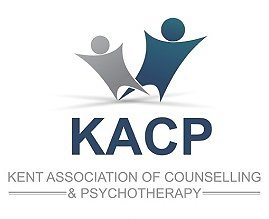Sex Addiction
Sex addiction has been portrayed as far back as the 3rd Century a condition whereby someone feels controlled by their sexual desires and compelled to act on them.
While there is little meaningful research into understanding sex addiction in the UK, advances in brain research and neuropsychology have increased our knowledge concerning the nature of chemical and behavioural addictions along with recognition of the links between childhood attachments and trauma. With the explosion of internet pornography people are now also becoming addicted to sex who would never have considered themselves vulnerable to addiction.
What is Sex Addiction
Including
- Pornography
- Stranger sex
- Partner sex
- Chat lines
- Prostitution
- Multiple affairs
- Sex cinemas
- BDSM (bondage, discipline, sadism Masochism)
- Exhibition
- Voyeurism
- Fetish practises
- Child pornography
- Rape
- Etc.
Statistics suggest one third of porn viewers are woman and up to twenty five per cent of addicts are woman however, it is thought woman have greater difficulty seeking help due possibly, to the additional stigma, woman face in admitting 'out of control' sexual behaviours (Ferree, 2002)
In healthy individuals’ sex satisfies a natural innate and primitive drive and is in harmony with our personal values beliefs and goals. Individuals addicted to sex misinterpret their sexual needs. Acting out is often used not to satiate a natural desire but an attempt to meet a deeper need. Sex addiction as the drug of choice is used as a coping mechanism a strategy used to alleviate negative emotions and manage life. Some may use sex to anaesthetise some are seeking perpetual pleasure the result however provides very little pleasure indeed.
Consequences of Sex Addiction
- Feelings of shame
- Low self-esteem
- Living with fear and dread
- Losing a relationship
- Sexual dysfunction ( excessive use of pornography can result in erectile dysfunction and/or delayed ejaculation )
- Mental health difficulties
- Physical health problems
- Dysfunctional parenting
- Suicidal ideation
- Catching an STI
- Loss of employment
- Wasting time and money
- Debt
- Legal action
- Press exposure
(Hall 2012)
Why am I a Sex Addict?
How Sex Addiction Starts
Trauma Induced Sex Addiction
Trauma can be induced as a result of childhood abuse, assault or an extended period of stress and anxiety such as, the loss of a parental figure and witnessing domestic violence. The NSPCC defines abuse as;-
- “Any action by another person - adult or child that causes significant harm to a child. It can be physical sexual or emotional, but can just as often be about a lack of love care and attention. We know that neglect can be just as damaging to a child as physical abuse”
Emotional abuse as an "undermining of a child’s confidence and sense of self-worth” resulting in low self-esteem shame and a reduced ability to care for self and others. When abuse happened within the family of origin there will almost certainly also be attachment issues.
The earlier the trauma the more significant the effect on the brain. It is now known that the imprint of significant early trauma is in the limbic system and in the brain stem – stored in our primitive animal brain not our thinking brain. The amygdala responsible for our ‘fight or flight’ response remains hypersensitive long after the trauma has gone.
The repetitive nature of compulsive sexual behaviour can be a way for the trauma sufferer to numb feelings of hyperarousal such as hyperactivity, obsessive thinking, and panic along with rage at the lack of protection, towards the perpetrator, the circumstances and with the inability to defend oneself. Sex may also be used to alleviate feelings of disassociation, numbness depression and exhaustion. (Fowler 2006, Fisher 2007)
Sex may have become a means of self-soothing or a way of self-harming reinforcing a sense of worthlessness and isolation
Individuals with traumatic abusive histories are likely to have the deepest and most painful scars of all, and while previous trauma remains unprocessed addiction will continue to both persecute and rescue leaving the addict in the role of victim.
Attachment Induced Sex Addiction
Someone with attachment induced addiction will be unconsciously using their behaviour as a means of soothing relational pain such as fear of rejection, suffocation loneliness or low-self-esteem. The sexual behaviour may be a way of getting close to others in a controlled manner without true intimacy or alternatively a way of creating or maintaining distance from an otherwise committed relationship.
Most of us will have experienced some degree of early attachment difficulty however, most individuals do not go on to become addicts or to use sex as their drug of choice indicating a complex variety of inter-woven contributory factors many of which are dependent upon another.
Opportunity Induced Sex Addiction
There is no readily available adequate education or advice and no public health warning of the negative consequences of acting out your desires and fantasies you may think it harmless joy - until of course you are hooked
Adolescence is a particularly vulnerable phase of development to the suggestive influence of porn. The teenager’s task is to successfully negotiate the journey of developing self-identity. It is a time of change and experimentation looking to peers for advice and affirmation rather than parents. Teens often report feeling different from their peers lonely and shy. These differences isolate the individual further making it easier, if opportunity is available to seek solace in porn and masturbation creating a sense of shame and further alienation from friends and potential partners. High levels of pornography viewing by teens negatively affects this critical developmental phase teenagers ordinarily go through in order to learn how to explore their sexuality in a healthy way and creates lower levels of sexual self-esteem. And so the stage is set for addiction.
The Brain Chemistry of Addiction
The problem is among the literally millions of neuro pathways in our brain if we always access these pleasure pathways in the same way, they will become stronger and other pathways previously used to access the pleasure chemicals will become weaker. These pathways become less effective and the addict finds they need more stimulation in order to get the same affect (Blum et al. 2000) As the addict seeks increased stimulation to receive the same excitement, crossing boundaries into illegal behaviour poses a real threat. 43 per cent reported viewing either child or animal pornography and 18 per cent had engaged in exhibitionist or voyeuristic behaviours (Hall, 2012)
The frontal cortex of the brain also becomes altered by addiction and we will experience difficulties with impulse control, deferring gratification and making judgement about harmful consequences. Since the frontal cortex of the brain is still maturing in adolescence, early exposure is believed to be a significant factor in the development of addiction (Addiction Today December 2011)
It has also recently been highlighted that the internet with its fast moving images disorientates our brain and taps into a different part causing the pleasure pathways to become amplified and accelerated. (Hudson Allez, 2009)
Social media has transported us to another level. According to BBC R4 (March 2017) A BBC investigation reported indecent images to Face book who subsequently reported the BBC rather than remove the illegal content.
Simply stated behavioural acting out as in sex addiction changes the chemistry of our brain which literally becomes dependent upon the chosen activity to feel pleasure and reduce pain
Can I Change?
There is a growing diversity of people, from all parts of society and backgrounds who struggle with sex addiction and yet there is currently little specialist care available within the NHS. Most treatment approaches are privately funded and some are initially residential based. There are a number of therapeutic approaches available it is not known if one approach is more helpful than another.
Overcoming sex addiction can never be about changing an individual’s taste in sexual behaviours but about changing their use of the behaviour whatever that may be.
A first step would be having an assessment to understand the impact of sex on your life, which will hold the key to recognising if indeed sex addiction is a “real” problem for you. Assessment may also help break through denial and establish cross addictions along with concurrent mental health difficulties like anxiety and depression.
Success very much depends upon your commitment and motivation to meet each treatment objective and the professional relationship you develop with your therapist. Some element of long-term work is needed for many especially if you are experiencing trauma and or attachment induced sex addiction
An integrative/cognitive behavioural therapy (CBT) approach has demonstrated some impressive results and will entail gaining a greater understanding of the underlying issues a working through of unmet needs and unresolved issues from the past that form the function of the addiction.
Shame
Shame is such a crucial element in maintaining sex addiction. It is said “shame is to addiction what oxygen is to fire”. Shame leaves us feeling powerless helpless and unworthy of receiving the help and support of others. An addict may act out to alleviate the pain of shame only to find it creates more. “When someone is trapped in shame recovery is not possible and relapse is almost inevitable. Whereas, guilt can be a significant motivator to overcome it (Gilliland et al., 2011) and so therapy will early on work at identifying addressing and reducing shame.
Paula Hall (2012) has identified and defined a six cycle phase to help clients become aware of how their addiction continues to maintain itself through their behaviours, thoughts and emotions. The dormant phase, the trigger phase, preparation phase, acting out followed by regret and reconstitution. The length of each phase and length of time between each phase will vary from addict to addict.
Treatment will include identifying avoiding, and successfully managing triggers-: helping to create positive self-esteem and deepen commitment to recovery. Recognising and addressing the cognitive distortions that occur during the preparation phase. Understanding when arousal is felt, whether or not there is another unmet need that is being stimulated. Understanding the function of the addiction on the acting out phase and becoming aware of how the regret and reconstitution phase are negotiated and managed. Alongside establishing relapse prevention strategies. As anaesthetised emotions come to the surface in therapy, exploration of healthier emotional management techniques that addicts can learn and practise will be essential along with finding out how a fulfilling life can be achieved without addictive behaviours.
As it is common for people with addiction to find themselves in dysfunctional relationships and most have relied upon intensity rather than balance, order, rhythm and harmony to provide a sense of happiness, recognising the building blocks of a successful relationship will also be crucial to recovery.
Sexual behaviour needs to be in line with personal values, which may need to be reclaimed, setting your own personal boundaries that are respectful of self and others, pleasurable and mutually fulfilling (when partnered) Satisfying sexuality is any kind of sexual expression that is fulfilling, emotionally, physically, psychologically and spiritually. It does not imply this will be in a heterosexual monogamous relationship.
Essentially to overcome sex addiction the brain needs to rewire which will include re-programming the brain with positive, affirming statements that encourage and support change and maintaining sobriety to allow the unhealthy neuro pathways to die off and to reconnect with other pleasure pathways.
You are Welcome to contact us Email










